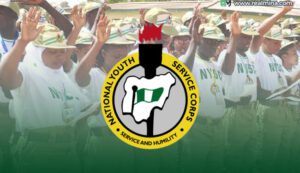Why we are borrowing heavily — Buhari replies critics
…a deliberate choice to fight poverty, he says
…Says assets, investment profiles, were paid for by debt
…Commissions three bridges, other projects, says efforts reflection of change his govt promised
By Moses Adeniyi
Amidst knocks and outcries over heavy borrowings by his Government even while the administration is to hand over power in less than six days, President Muhammadu Buhari has defended the heavy borrowings under his government which has recorded the Country’s public debt hitting over 46.25trillion.
In his defence, the President described the heavy resort to borrowings which has swelled Nigeria’s debt profile as a tool for “deliberate choice” to fight poverty, create economic growth and employment for Nigerians by development of infrastructure.
Buhari told those raising alarm over the debt profile of the Country to also look at the assets and investment profiles, some of which he said were paid for by debt and some by investment income.
“It has been a deliberate choice for our government as a tool to fight poverty, to create economic growth and employment and to open the path of prosperity for our people,” Buhari was quoted by his Senior Special Assistant on Media and Publicity, Garba Shehu.
In a statement he signed on Tuesday titled ‘We invested in infrastructure for economic growth and prosperity, says President Buhari as he commissions Second Niger Bridge, others,’ Buhari gave the explanation at the virtual commissioning of three bridges, three secretariats and one road project undertaken by his regime.
Buhari in defence of criticisms which slammed his government over unceasing recourse to borrowing, said, “We do not act on infrastructure by accident. It has been a deliberate choice for our government as a tool to fight poverty, to create economic growth and employment and to open the path of prosperity for our people.”
He emphasised that while he shared the concerns of Nigerians, the debts were tied to projects that had been executed in very transparent circumstances for people to verify.
“As we look at the debt profile, I urge us to also look at the assets and investment profiles, some of which were paid for by debt and some by investment income.
“In eight years, I am proud to say that we have doubled Nigeria’s stock of infrastructure to GDP from about 20 per cent to over 40 per cent and that is no small undertaking.
“The projects that we hand over today, apart from others such as rail, sea and airports; gas pipeline projects that have been previously completed, symbolise our country’s sharp focus on delivering prosperity,” he said.
He described three of the bridges being commissioned as frontal efforts to address multidimensional poverty and improve business efficiency and service delivery time.
“The Ikom Bridge is meant to boost trade in and around the Calabar Port and Free Zone and facilitate transport connectivity from the South-South, through the North-Central to the North-East. This is a bridge across the Cross River itself.
“The Second Niger Bridge, which has been long in the making, and is certainly now a reality, is a bridge of choice across the River Niger to bring relief to those crossing from the Southeast to the Southwest.
“The Loko-Oweto Bridge, across the River Benue, will provide shorter connectivity for those traversing from Benue to Nasarawa and the Federal Capital Territory. It cuts off travel through Lafia and provides connectivity to Keffi and Abuja,” Buhari said.
Buhari also commissioned 200 kilometres out of the 365 kilometres Abuja-Kano highway, noting that the road, the Second Niger Bridge, and the Lagos-Ibadan Expressway were all funded partly from dividend income earned from investment in the Nigeria Liquefied Natural Gas, repatriated funds from overseas, and recoveries from proceeds of crime successfully prosecuted at home.
”This is an example of the change that we promised; to invest dividend income in visible assets that last for generations and to put proceeds of crime to public and enduring use for the country. Our anti-corruption approach does not end in court. Stolen and recovered assets are utilised for the common good,” he said.
The President also commissioned three federal secretariats in Anambra, Bayelsa and Zamfara States, believing that the projects would reduce the cost of governance by bringing federal civil servants under one roof for efficient service delivery, thereby reducing expenditure on rent for office spaces.
The President Buhari-led Federal Government has been known for recurring borrowings for which it has come under heavy knocks, as stakeholders downplay the impact of the loans incurred and the risk of the Country sliding into debt trap.
Although his administration draws closer to handing over power, it has not ceased from borrowing, as President Buhari had again 18 days to the end of his administration placed before the Senate on Wednesday May 10, approval for another loan to the tune of $800million from the World Bank, a development that generated reactions.
Recall the duo of the Senate and House of Representatives had barely three weeks ago respectively on Wednesday, 3rd May, and Thursday, 4th May, approved the President Buhari’s Ways and Means N22.7 trillion loan request to be sourced from the Central Bank of Nigeria (CBN).
The N22.7 trillion Ways and Means credit facility which authorises the Federal Government to borrow money from the (CBN), would be adding to the huge debt profile of the Country which has become a burden with lamentations from stakeholders who fear the Country may become trapped in debt with the risk of using 100 percent of her revenue to service debt.
Reacting to the debt burden of the Country, the Budget Office of the Federation had said trouble looms for the Country, pointing to a “limited borrowing space” amidst poor debt-to-revenue ratio.
The Director-General, Budget Office, Ben Akabueze, while addressing members-elect of the 10th National Assembly at their week-long induction ceremony in Abuja on Wednesday 10th May, had pointed out that while Nigeria remains healthy with its debt-to-GDP ratio, the Country is not with its debt-to-revenue ratio.
Akabueze whose address to the newly elected and returning members of the National Assembly, who upon inauguration will be responsible for the consideration, amendment and passage of annual budgets of the Federal Government as well as approval of loan request, coincided with the time the Buhari’s loan request was read on the floor of the Assembly last Wednesday, had said: “You may have heard that we have one of the lowest Gross Domestic Products-to-debt ratios in the world. While the size of the FG budget for 2023 created some excitement, the aggregate budget of all the governments in the country amounted to about N30tn. That is less than 15 per cent in terms of ratio to GDP.
“Even on the African continent, the ratio of spending is about 20 per cent. South Africa is about 30 per cent; Morocco is about 40 per cent. And at 15 per cent, that is too small for our needs. That is why there is fierce competition for the limited resources.
“That can determine how much we can relatively borrow. We now have very limited borrowing space; not because our debt to GDP is high, but because our revenue is too small to sustain the size of our debt. That explains our high debt service ratio. Once a country’s debt service ratio exceeds 30 per cent, that country is in trouble and we are pushing towards 100 per cent, and that tells you how much trouble we are in.
“We have limited space to borrow. When you take how much you can generate in terms of revenue and what you can reasonably borrow, that establishes the size of the budget. The next thing would be to pay attention to the government’s priority regarding what project gets what.”
It is feared the Buhari-led Government would be leaving the Country with a total debt stock of about N80trillion after exiting on May 29, far away from the Country’s debt profile at 12.12trillion as of June 2015, barely a month after Buhari assumed office as President.
According to report, the Federal Government’s borrowing from China has grown by 209.15 per cent under the Buhari’s government, just as total bilateral loans rose by 219.91 per cent from $1.58billion as of June 2015 to $5.07billion as of December 2022.
Total borrowing from China rose from $1.39billion to $4.29billion in the period under review.
The debt explosion has seen stakeholders lamenting the risks before the Country, particularly as over 90 per cent of the Country’s revenue is being gulped by debt servicing.




